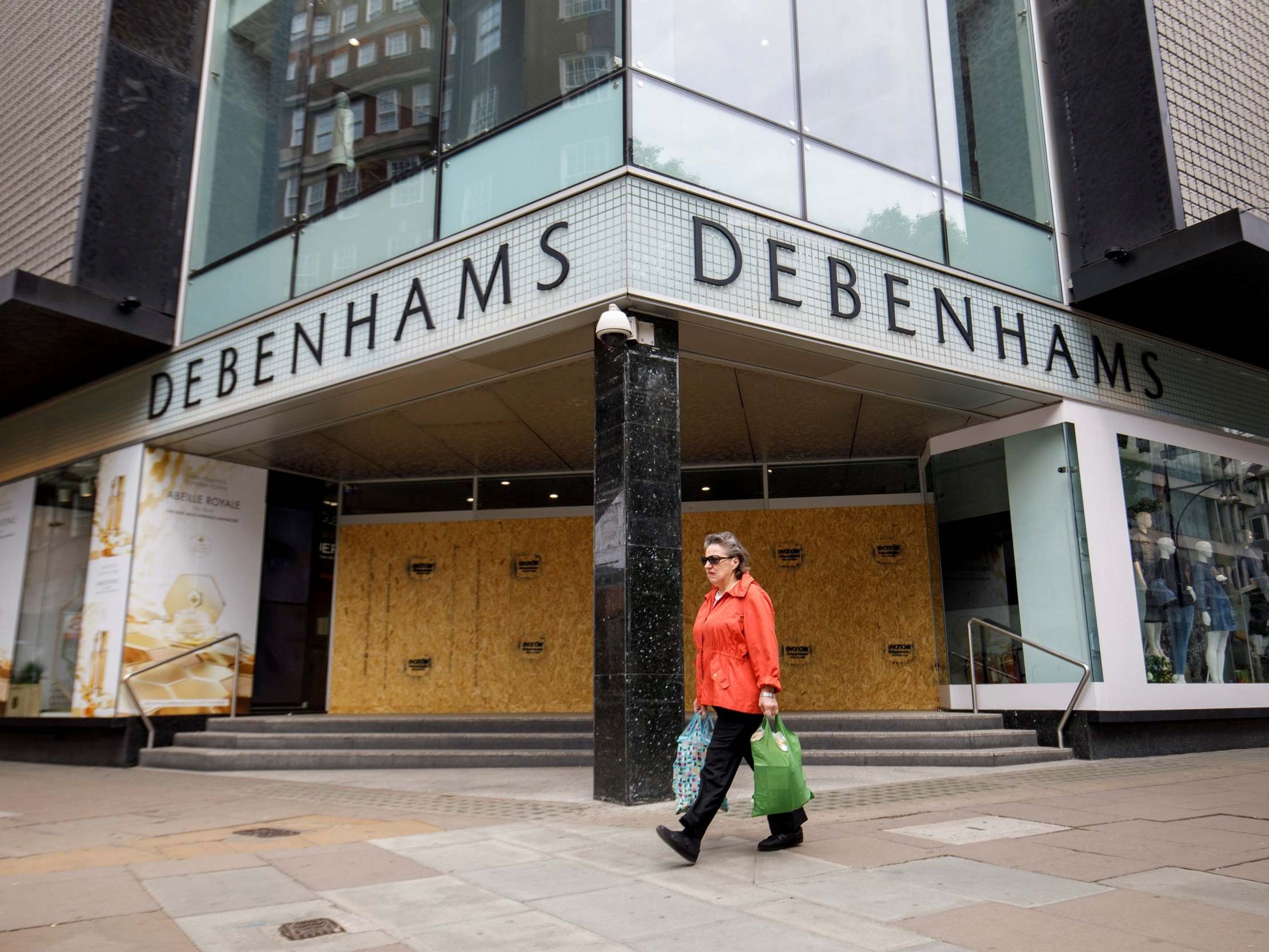High street bloodbath: 14,000 jobs at risk as Debenhams draws up liquidation plans
Closure of chain’s 124 stores would be single most devastating number of redundancies announced yet during coronavirus-sparked recession

Your support helps us to tell the story
From reproductive rights to climate change to Big Tech, The Independent is on the ground when the story is developing. Whether it's investigating the financials of Elon Musk's pro-Trump PAC or producing our latest documentary, 'The A Word', which shines a light on the American women fighting for reproductive rights, we know how important it is to parse out the facts from the messaging.
At such a critical moment in US history, we need reporters on the ground. Your donation allows us to keep sending journalists to speak to both sides of the story.
The Independent is trusted by Americans across the entire political spectrum. And unlike many other quality news outlets, we choose not to lock Americans out of our reporting and analysis with paywalls. We believe quality journalism should be available to everyone, paid for by those who can afford it.
Your support makes all the difference.Up to 14,000 jobs could be at risk after reports that the owners of retailer Debenhams are drawing up plans for its liquidation.
The closure of the 124-store chain would almost certainly represent the biggest single jobs bloodbath of the coronavirus-sparked recession so far.
Hilco Capital, a company that specialises in winding down struggling retail firms, has been appointed to come up with proposals in the event that an emergency sales process fails to find a buyer by the end of this month.
Hilco’s role was described this weekend as “contingency planning” by people close to the company, Sky News reports.
But if the restructuring company is called upon to wind down the business, job losses would dwarf even those at British Airways, where managers have proposed making 12,000 employees redundant.
The news rounds off a dreadful week for the British high street, during which 4,300 job losses have been announced by major retailers.
And that follows thousands of earlier redundancies, including 5,000 at Upper Crust, 4,000 at Boots and 700 at Harrods.
The chill wind on the high street appears to be only the start of an economic hurricane caused by the coronavirus: one in three companies are now expected to have let go of staff by the end of September, new research by the Chartered Institute of Personnel and Development said on Tuesday.
Debenhams had already announced 2,500 redundancies this week after it went into administration in April when the coronavirus lockdown decimated revenue.
Its owners have already launched an auction to secure new investors or attract a buyer for the whole chain.
However, while a number of parties are said to have expressed interest, analysts believe it is unlikely a buyer will take on Debenhams in its current form.
The company has said it wants to conclude the sale process by the end of next month, meaning that if no agreement is reached, the chain would almost certainly fail.
In a statement, a spokesperson said the chain was “trading strongly, with 124 stores reopened and a healthy cash position”.
But they added: “The administrators of Debenhams Retail Ltd have initiated a process to assess ways for the business to exit its protective administration.
“The administrators have appointed advisors to help them assess the full range of possible outcomes which include the current owners retaining the business, potential new joint venture arrangements (with existing and potential new investors) or a sale to a third party.”
The company declined to comment specifically on the involvement of Hilco, while Hilco itself could not be reached for comment on Saturday.
Debenhams dates right back to 1778 when William Clark established a drapers store selling expensive fabrics, bonnets and gloves in London's West End.
It opened its first shop outside the capital – in fashionable Cheltenham in 1818 – and expanded over the next century to become the UK’s largest department store group by 1950.
But it has had a turbulent modern history and fell into administration last spring after a bitter public battle with the Sports Direct tycoon Mike Ashley, whose Frasers Group had become its biggest shareholder.
It launched a company voluntary arrangement to escape full closure that time round, with several store closures and agreed rent cuts.
Join our commenting forum
Join thought-provoking conversations, follow other Independent readers and see their replies
Comments